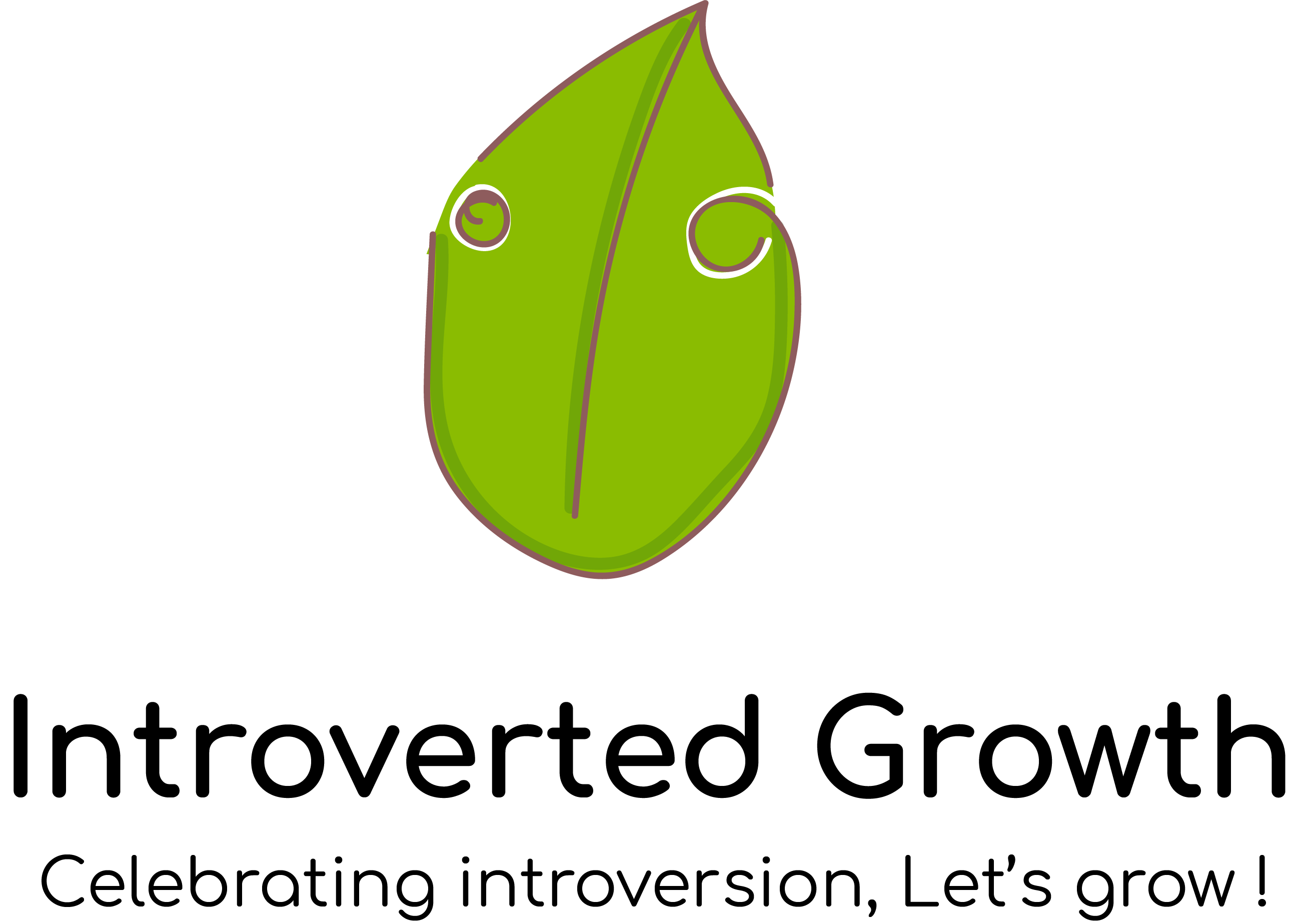This will be the last article in the Extraverted Functions mini-series. You might be interested in the other three I already covered: Extraverted thinking explained, Understanding the Ne function, and What is Extraverted Sensing.
In this article, we’ll be covering the meaning of extraverted feeling, what Myers Briggs personality type uses the Fe function.
We’ll also list some signs you might be an extraverted feeler and how to develop your Fe function if you’re one.
Interesting to you? Let’s dive right in!
What is Extraverted Feeling (Fe)
Extraverted feeling is one of the eight cognitive functions proposed by Carl Jung in his theory of psychological type.
It’s a decision-making function that orients itself around establishing harmony in its environment, to pick up on what is important to the people around them.
It’s also about making moral judgments and deciding how events affect other people, with emphasis on social norms and established behavior.
People with te function make decisions based on how they will affect other people and their sense of what is right and wrong as dictated by society.
The Dominance of Extraverted Feeling in Fe Types
Extroverted feeling types, like other feeler personalities, are concerned with people’s emotions and well-being. They’re drawn to people who feel as they do about the world, and enjoy spending time with those types of people
Fe types tend to strive for harmony in their environment. They want everything to be pleasant, they don’t like conflict and they try to make everyone happy around them.
They like to use their Fe function in order to help people solve problems. This may be due to the fact that they’re able to see how different people might feel in a specific situation and they can determine how to make everyone happy.
They’re also good at understanding what another person might want from them, and they can offer many options.
Te users are different from Ti users because they base their decision-making process on external social values while introverted feelers make decisions internally based on personal values.
What Personality Types Use Extraverted Feeling (Fe)?
Extroverted feeling is the second most widely used function in Myers Briggs Types, but it’s most apparent in people with Te as their dominant and auxiliary function.
- (Fe) as the dominant function of EFJ personality types: ENFJ, ESFJ
- (Fe) as the auxiliary function of IFJ personality types: INFJ, ISFJ
- (Fe) as the tertiary function of ETP personality types: ENTP, ESTP
- (Fe) as the inferior function of ITP personality types: INTP, ISTP
20 Signs To Help You Identify As An Extraverted Feeler
-
You’re a mood thermometer
you may notice you can easily pick up on other people’s moods, especially the general mood in a crowded place. As soon as you walk into a room you can tell if there’s tension, discomfort, or Joy in the air.
-
You have a natural ability to influence people’s moods
you may find yourself easily influencing people by your words and actions, knowing what to say and do in order to make them feel better. You can easily adapt yourself and change your tone of voice when talking to someone, in order to make them feel comfortable.
-
You’re good at understanding people’s feelings
you can easily tell when another person is feeling upset, even if they’re covering it up. Even if people don’t say what’s wrong, you can usually tell when something isn’t right just by looking into their eyes.
-
You know how to express yourself emotionally
You may find yourself doing more hand movements, facial expressions, and body language than those who don’t use Fe as their dominant or auxiliary function. You have an easy time expressing yourself emotionally, without even noticing or trying.
-
You make decisions based on what you think will make other people happy
Even if it’s not something that makes you happy, you may find yourself doing something that you don’t necessarily want to do because you know it will make someone else happy. For example, if your friend is sad about something, but you’re tired, you may still go out with them because you know it will put a smile on their face.
-
You sense when someone isn’t being completely honest with you
you may have a gut feeling from your introverted intuition function that someone is hiding something from you, or not telling you the whole story. Although it takes a bit more for you to actually figure out what the problem is, every now and then you’ll get a gut feeling that tells you something isn’t right.
-
You’re good at guiding groups of people to make decisions
you like working with groups of people and collaborating to reach a common goal. You know how to weigh everyone’s opinions, and you’re good at leading a group to make a decision.
-
You can easily motivate people
you have an easy time motivating yourself and getting yourself excited about something, but you also have an easy time motivating others. In your job or personal life, you may find that people have a hard time following an idea or direction unless you’re the one leading them.
-
You feel more comfortable when someone knows what they want
you like it when people make decisions and know what they want in life. You may find yourself doing things to help them achieve their goals, which is something you enjoy doing.
-
You feel out of place when your emotions are unspoken
you don’t like it when people keep their emotions to themselves, even when there’s nothing wrong. You find it awkward when people around you are pretending like everything’s okay when it really isn’t.
-
You’re always thinking about what to say or do next
you can be somewhat of a perfectionist, especially when it comes to the way you express your emotions and feelings. You often think about what to say or how to act, especially in social situations where you need to figure out the “right” thing to do.
12.You’re a natural peacemaker
You’re always trying to keep the peace and avoid conflicts. You’re the one who will try to find a compromise when there’s a disagreement between people.
Your goal is to create a harmonious environment and you’ll do whatever it takes to achieve it.
13.You have a strong sense of empathy
You’re able to understand and share the feelings of others. You’re able to put yourself in other people’s shoes and understand their perspective. You’re sensitive to the emotions of others and you’re able to respond appropriately.
14.You’re a good listener
You’re a great listener and you’re always willing to lend an ear to someone who needs to talk. You’re able to provide emotional support and you’re able to understand what people are going through. You’re able to give advice and guidance when needed.
15.You’re a social butterfly
You’re outgoing and sociable. You enjoy being around people and you’re able to connect with others easily. You’re able to make friends easily and you’re always looking for new people to connect with.
16.You’re a people pleaser
You want to please people and you’ll go out of your way to make them happy. You’ll often put other people’s needs before your own and you’ll do whatever it takes to make them happy. You don’t want to disappoint anyone and you’ll often go above and beyond to make sure they’re happy.
17.You’re a great team player
You’re able to work well in a team and you’re able to contribute to the group’s goals. You’re able to understand the different dynamics within a group and you’re able to work well with others. You’re able to create a sense of unity and you’re able to bring out the best in others.
18.You have a strong sense of community
You believe in the power of community and you’re committed to making a positive impact on society. You’re able to understand the needs of your community and you’re able to work towards creating a better future for all. You believe in shared values and you’re able to work towards creating a harmonious society.
19.You have strong emotional intelligence
You’re able to understand and manage your own emotions, as well as the emotions of others. You’re able to use your emotional intelligence to navigate social situations and you’re able to understand how your actions and words can affect others. You’re able to use your emotional intelligence to create a sense of harmony in your relationships and in your community.
20.You’re highly attuned to social norms and expectations
You’re aware of the social norms and expectations in your community and you’re able to navigate them with ease. You’re able to understand the social cues and you’re able to adjust your behavior accordingly. You’re able to understand what is appropriate and what isn’t, and you’re able to act accordingly to maintain social harmony.
21.You’re able to balance your own emotions with the emotions of others
You’re able to balance your own emotions with the emotions of others. You’re able to understand when it’s appropriate to express your own emotions and when it’s not. You’re able to regulate your own emotions and you’re able to understand the impact they have on others. This allows you to maintain harmony in your relationships and in your community.
22.You’re highly attuned to the emotional needs of others
You’re able to understand the emotional needs of others and you’re able to respond appropriately. You’re able to provide emotional support when needed and you’re able to understand when someone needs space. You’re able to understand the emotional needs of others and you’re able to respond in a way that creates harmony in your relationships and in your community.
The role of extroverted feeling in decision making
Extroverted feeling plays a crucial role in decision making for those who have it as a dominant or auxiliary function.
Fe users make decisions based on how they will affect other people and their sense of what is right and wrong as dictated by society. They strive to maintain harmony and balance in their environment and the well-being of others is often a priority in their decision making process.
This can be both a strength and a weakness, as Fe users may sometimes prioritize the needs of others over their own needs and may struggle with assertiveness.
Fe users are often able to understand the emotions and needs of others, which allows them to make decisions that will create a positive impact on those around them. They often have a strong sense of shared values and they’re able to understand how different people might feel in a specific situation. They’re also able to offer many options to help people solve problems.
Fe users are different from Ti users because they base their decision-making process on external social values while introverted feelers make decisions internally based on personal values.
Real-life examples of extraverted feeling in action
- The Fe function is often seen in individuals who work in roles such as social workers, counselors, and human resource managers. These individuals are able to understand the emotions and needs of others and help them to solve problems. They are able to create a positive and supportive environment and they are able to resolve conflicts and create a sense of teamwork and collaboration.
- Politicians and leaders with a strong Fe function are often able to connect with their constituents and understand their needs and concerns. They are able to create a sense of unity and shared values and they are able to create a sense of harmony in the community. They are able to empathize with their constituents and understand their perspectives, which allows them to create policies and programs that will positively impact their lives.
- Fe function is also seen in individuals who are able to understand the emotions and needs of their customers and provide excellent customer service. They are able to create a sense of trust and understanding with their customers and they are able to resolve conflicts and create a sense of satisfaction and loyalty.
Fe vs Fi: the difference between extraverted and introverted feeling
The Fe function and the Fi function are both related to emotions and feelings, but they differ in the way they approach decision making and understanding the world around them.
Fe users base their decision-making process on external social values while Fi users make decisions internally based on personal values. Fe users are often able to understand the emotions and needs of others and create a sense of harmony and balance in their environment.
Fi users, on the other hand, prioritize their personal values over logic in decision-making and process the outside world using the subjective element of information.
They are often able to understand their own emotions and feelings very well and they are able to make decisions based on their own personal values and beliefs. Fi users are often more independent and self-reflective and they may have a more reserved and introverted personality.
Tips for identifying and understanding your own extraverted feeling function
Identifying and understanding your own Fe function can be a process of self-reflection and self-discovery.
- One way to start this process is to pay attention to how you react to different emotions and feelings. Do you tend to empathize with others and understand their emotions and needs? Do you tend to create a sense of harmony and balance in your environment? Do you tend to prioritize the emotions and needs of others over your own?
- Another way to identify and understand your Fe function is to observe your decision-making process. Are you basing your decisions on external social values or on your own personal values? Are you able to understand the emotions and needs of others and create a sense of unity and shared values? Are you able to create a sense of trust and understanding with others?
How To Develop Extraverted Feeling?
Extraverted feeling is all about recognizing people’s feelings around you and using them to make what you deem as the right decision.
So for you to develop this function, you should practice using it more in your everyday life. For example, if you’re at a social event, try to think about what people are feeling and how you can use what you know about them to have a positive impact on their experience.
You may feel like someone is uncomfortable and having a hard time fitting in, so you intentionally start to introduce him to the people you know to make him feel more welcome and at ease.
- Focus on what people are feeling, not just what they’re saying. You might be able to pick up on someone’s feelings better if you think about their body language, facial expressions, and tone of voice rather than just solely paying attention to what they’re saying.
- Trust your feelings and intuition more. Your feelings are usually right, so make sure you listen to them more often. For example, if someone seems suspicious, don’t dismiss your gut feeling even if there’s no concrete evidence.
- Be mindful of other people’s emotions you probably already do this to some extent, but it’s important that you continue to try to recognize others’ feelings. For example, if you upset someone close to you and they don’t tell you how they’re feeling, then think about what you said that might have made them feel that way.
- Don’t always ask for people’s opinions before making a decision your main purpose in life is to help others, but that doesn’t mean you can never make decisions for yourself. Sometimes, you need to step up and take action without putting too much thought into whether or not it’s what people want or need.
CONCLUSION
Did you recognize yourself in some of these signs? If you’re an extraverted feeler, then Use what you’ve learned in this article to help yourself and others!
You may also be interested in the Ni function and Se function since these two functions are found in most people with Te dominant function.
Thank you for reading!






